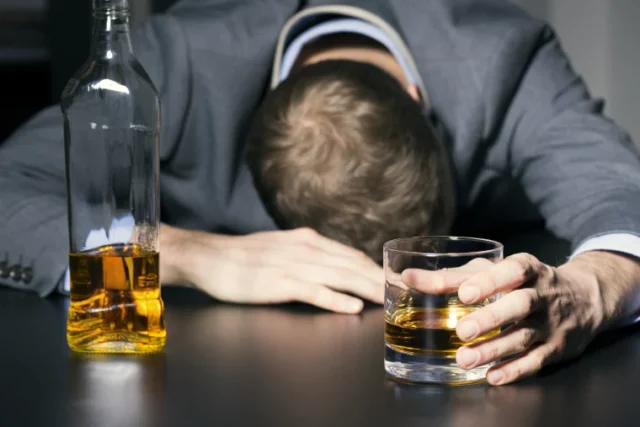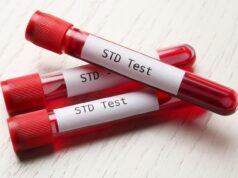If you’re struggling with alcoholism, you may be wondering how to detox from alcohol. Alcohol withdrawal can be dangerous, so it’s important to detox under medical supervision. Withdrawal symptoms can include anxiety, shaking, sweating, and seizures. The severity of symptoms depends on how much and how often you’ve been drinking.
Detoxing from alcohol isn’t easy, but it’s important to get help if you’re struggling with addiction. There are a number of resources available to help you detox safely and start on the road to recovery.
Understand the dangers of alcohol withdrawal
Withdrawing from alcohol can be dangerous, so it’s important to detox under medical supervision. Withdrawal symptoms can include anxiety, shaking, sweating, and seizures. The severity of symptoms depends on how much and how often you’ve been drinking. If you’ve been drinking heavily for a long time, you’re at risk for more severe symptoms and may need to detox in a hospital setting.
Get medical help
If you’re struggling with alcoholism, it’s important to get help from a medical professional. They can help you detox safely and provide support during withdrawal. They can also prescribe medication to help manage symptoms.
Find a support group

Support groups can be helpful resources during detox and recovery. Alcoholics Anonymous (AA) is a well-known support group for people struggling with alcoholism. There are also online support groups available.
Change your lifestyle
One of the most important things you can do to help yourself during alcohol detox and recovery is to change your lifestyle. This means making changes to the way you eat, exercise, and handle stress. It’s also important to avoid triggers, such as people or places that make you want to drink.
Day 1: Beginning the Detox Process
Day 1 represents the beginning of the detox process. During this initial stage, it is important to begin by preparing your environment. Start by removing any alcohol from where you currently reside and consider finding a space in which to rest during these next five days. Try to establish a comfortable setting that provides calming vibes, like dimming the lights, playing soft music, and placing aromatic candles around you as desired.
The next step is optimizing your diet. Due to the intense nature of this process, it’s best to start with simple food options that can be easily digested with minimal effort; opt for foods such as organic soups and cooked grains while avoiding animal proteins or dairy products at this time if possible. Additionally, pay attention to how your body responds and adjust accordingly.
Day 2: Continuing the Detox Process
On Day 2 of your alcohol detox, the body begins to adjust to the lack of alcohol in your system. It is important to remain hydrated and take plenty of breaks throughout the day if you feel fatigued. In addition, take steps toward improving your eating habits such as opting for healthy snacks and avoiding processed sugar.
Throughout this process, stay active. You can still work out while reducing or eliminating alcohol consumption as long as you don’t overexert yourself physically or emotionally. Aim to do activities that make you feel good at the moment such as taking a walk in nature or trying a new type of exercise like yoga or dance classes.
Day 3: Reaching the Halfway Point

On Day 3 of abstaining from alcohol, your body should start to feel more balanced emotionally and physically. You will likely have more energy than you had on the first two days, and you may begin to focus more on your goals for sobriety and better health. At this point in the detox period, it’s important to get a handle on nutrition, exercise and sleep patterns, as each of these areas plays an integral part in helping your body heal from the effects of alcohol abuse.
Day 4: Finishing the Detox Process
On day four, it is important to remain focused on your goals and to stay engaged in activities that will keep you busy and your mind occupied. Many people who are detoxing from alcohol also experience withdrawal symptoms such as headaches and nausea, so it is important to take any medications that have been prescribed by your doctor to help reduce these side effects. You should be sure to eat regular light meals throughout the day, avoiding large, greasy meals that can be difficult for the digestive system to process.
Additionally, exercise or activities such as yoga or meditation can be helpful in improving mood and easing any anxiety or depression that might remain after having stopped drinking. Make sure you get plenty of rest and avoid anything that might cause stress. It is also recommended you talk with a therapist or counselor who specializes in addiction if you are feeling overwhelmed throughout the process as they can help provide support through this difficult time.
By utilizing these strategies while observing an overall healthy lifestyle on day four of your alcohol detox journey, you can complete the process safely and begin working towards living an alcohol-free life.
Aftercare and Maintenance

Aftercare and maintenance are important parts of the detoxification process. Although the goal is to abstain from alcohol completely, it is important to be realistic and understand that cravings and relapse can occur even after successful detoxification. This is where aftercare plans come in.
An effective aftercare plan should include steps that help you maintain sobriety and prevent relapse, such as:
- Creating a support system with family, friends, or a therapist who is able to provide support and guidance throughout recovery.
- Attending 12-step meetings such as Alcoholics Anonymous or SMART Recovery programs to find the right coping strategies for abstinence.
- Seeking professional help from an addiction counselor, psychologist, or psychiatrist to evaluate your individual needs.
- Participating in activities that promote good physical health such as exercise, proper nutrition, and restful sleep habits.
- Developing hobbies and interests which can distract your mind away from thoughts of alcohol while fostering personal growth.
- Learning relaxation techniques like yoga or meditation to help reduce stress levels that may trigger a relapse.
Conclusion
Detoxing from alcohol isn’t easy, but it’s important to get help if you’re struggling with addiction. There are a number of resources available to help you detox safely and start on the road to recovery.









